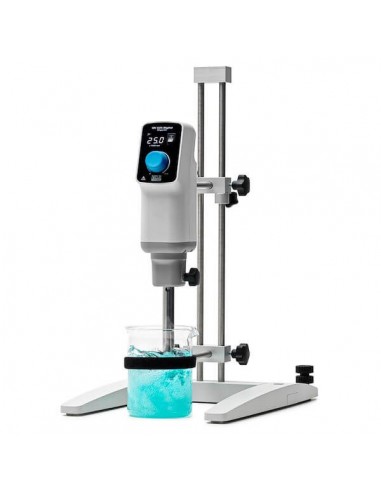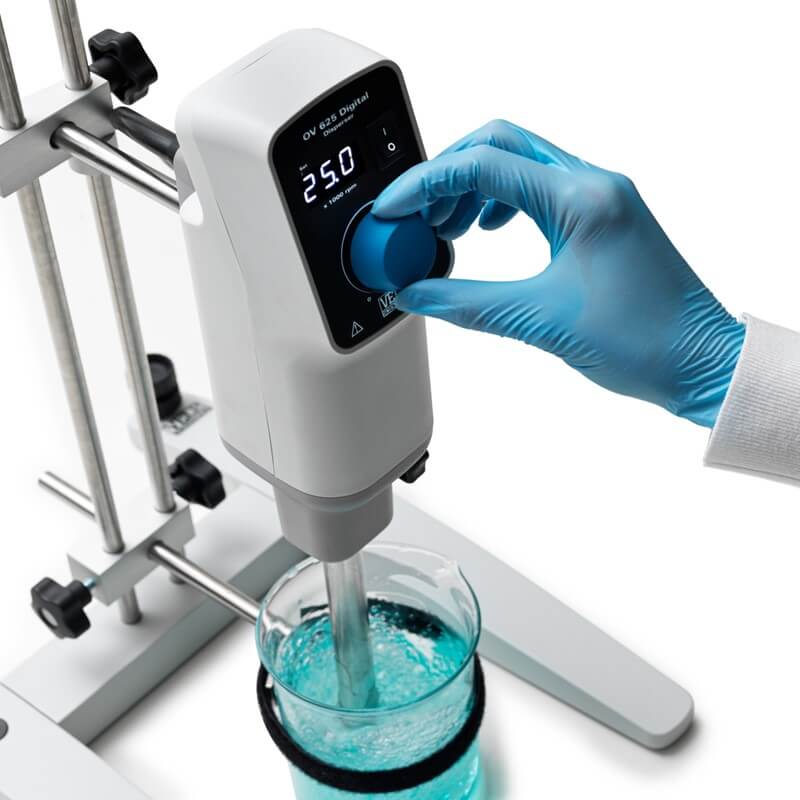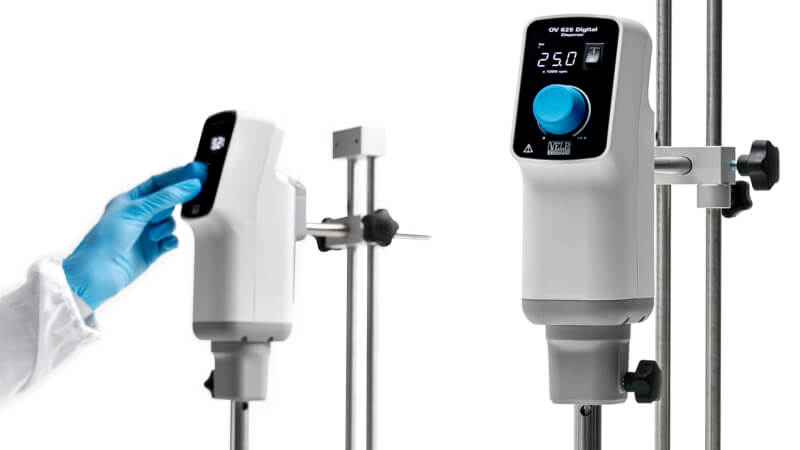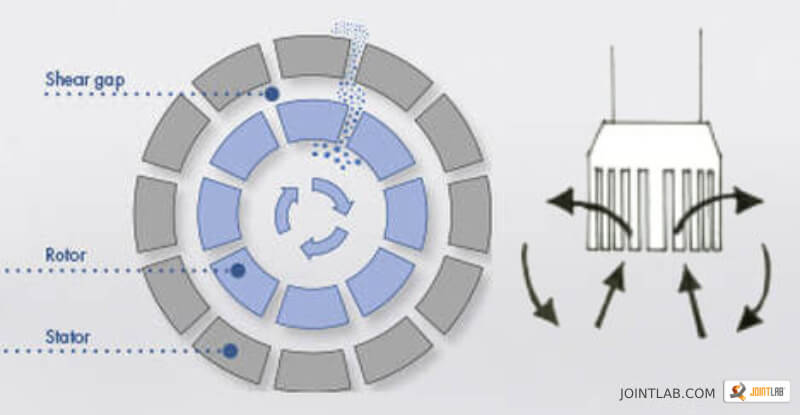Disperser OV 625 Digital System Velp
JLSA20900470
Delivery in 12/15 days
€1,760.00
VAT excluded
Price including VAT: €2,147.20
Taxes calculated 22%. Pls. keep in mind, taxes vary by country: France taxes will be 20%, in Spain 21% etc., out EC 0% and if you are a company always 0%
Powerful digital disperser with double rod holder and D20-S20C-P-R20S disperser. Viscosity up to 5,000 mPa s; speed from 3,000 to 25,000 rpm.
- Stirring Speed Range
- 3.000 – 25.000 rpm
- Max. stirring volume
- 0,2 ml - 2,5 liters
- External dimensions mm L x P x A
- 92x130x280
- Control panel
- Display LCD
- Power W
- 800 W
- Various
- Speed regulation accuracy: 200 rpm; Permissible ambient temperature: +5 … +40 °C; Permissible storage temperature: -10 … +60 °C; Humidity allowed: up to 80%; Altitude: up to 4,000m; Engine: BAC.
- Noise
- 75 dba
- Viscosity max.
- 5.000 mPa*s
- Materials
- Aluminum - Technopolymer
- Weight kg
- 2,4
Options or connected products


























